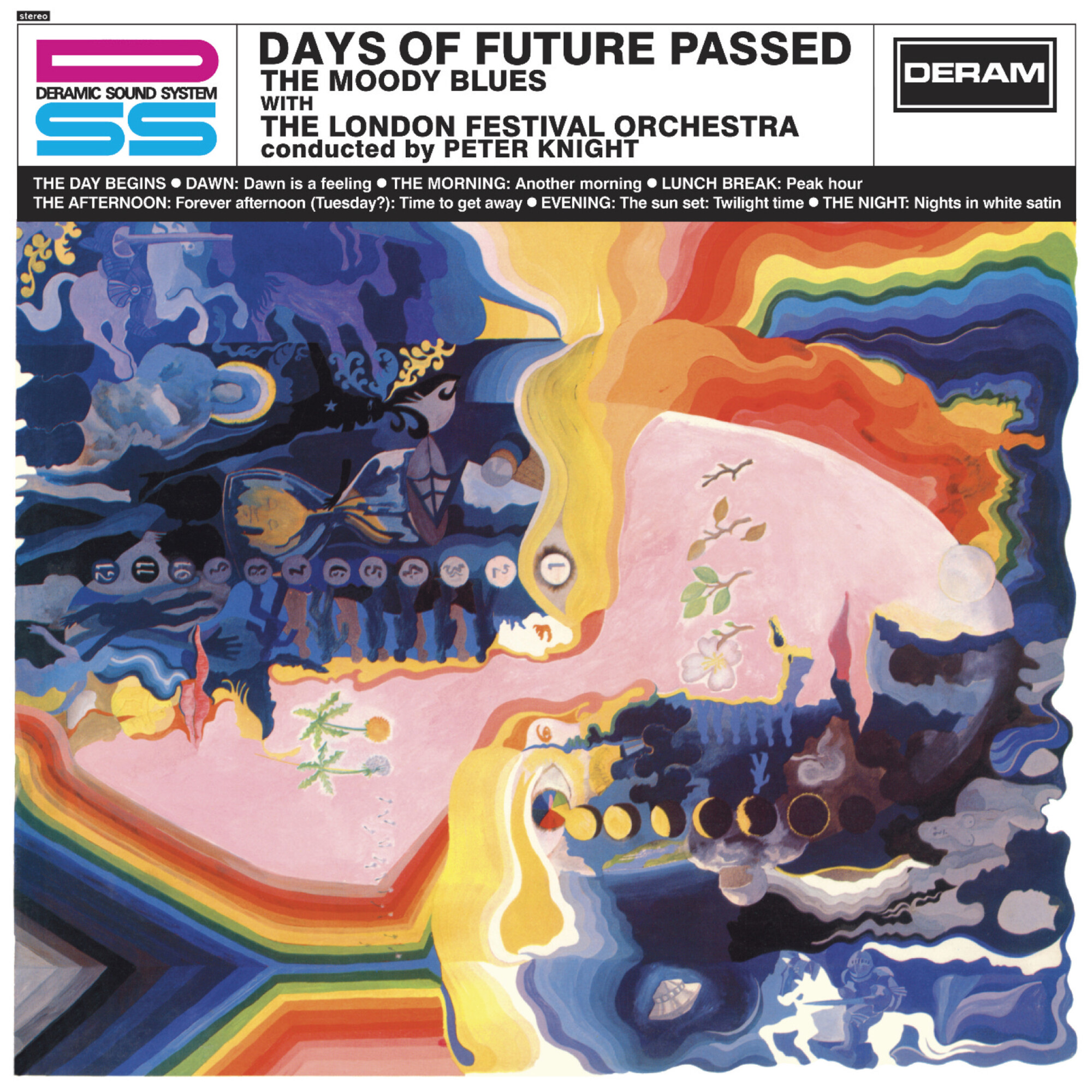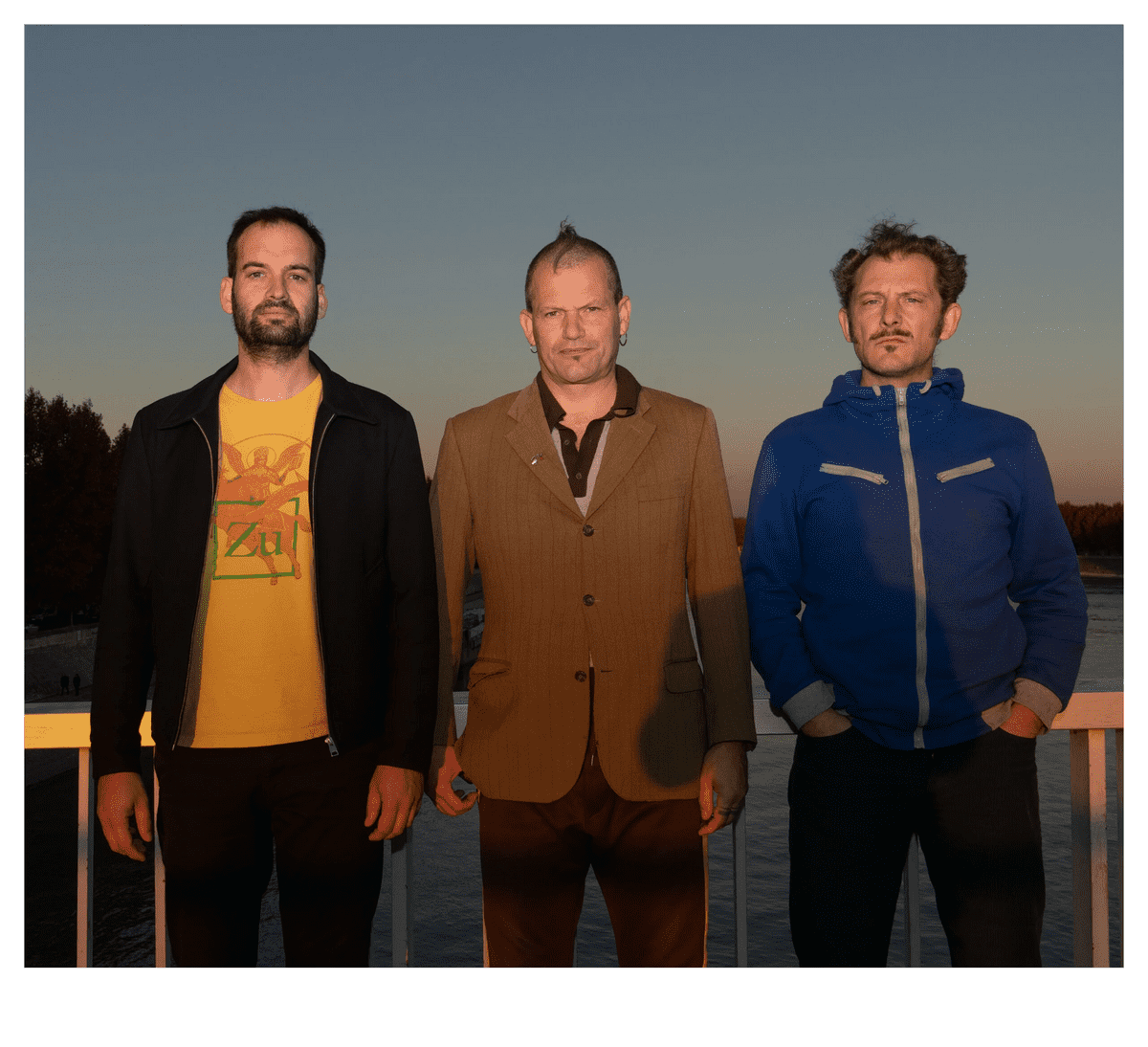The Moody Blues With The London Festival Orchestra – “Days of Future Passed” [50th Anniversary Vinyl Edition] (1967)
With the album being dwarfed by the brilliant single ‘Nights In White Satin,’ where so many radio listeners, entranced by the hypnotic flowing harmonies, music and lyrics, were almost defeatedly let down when they brought this album into the homes, thinking that it would contain more of the same. Which it does not.
The notion of this is supported by the number of these albums that turn up at estate and garage sales, where the final track has been played to death, while the rest of the physical record are as pristine as the day it was purchased, rendering the album nearly valueless on the secondary market. Yet still, here I sit with an album that promises to unlock new sonic doors and present ‘Days Of Future Passed’ as I’ve never experienced it before.
The one thing ‘Days Of Future Passed’ had going for it, was that it was a concept album, a new and ambitious undertaking, an avenue that many bands were not venturing down. What the album didn’t have going for it was the London Festival Orchestra, along with the two spoken word poems, as these concepts at the time were seen as products of a bygone era, not compatible with current musical tastes and explorations. In short, this ambitious body of work, this opus delivered into the middle of the psychedelic 60’s, where anything and everything was envisioned in how it related to the drug culture, or more pointedly, how the music would sound if one were tripping. To that end, the album fell on deaf ears when compared to what The Beatles and others were doing at the time.
‘Days Of Future Passed’ is neither here nor there, it was not old and it was not new, it wasn’t rock and it wasn’t classical, it wasn’t easy to digest, it was complex and complicated, perhaps the first widely accepted pieces of progressive rock to be embraced, musically representing a day in a (working) life. Leaving me to ask, “now where have I heard that particular concept before?” Nevertheless, while the Moody Blues would continue to venture vast and sweeping musical concepts, this rendition would be jettisoned … certainly bits and pieces would weave their way into future release, but as a whole, the bombastic orchestration would become a thing of the past. It’s interesting to note that the only time the band and the orchestra play together is on the final track, “Nights In White Satin.” With that in mind, most listeners and critics saw this outing as snobbish, as a higher art form, failing to embrace the common man that the Moody’s were singing about.
‘Days Of Future Passed’ falls in and out of favor, certainly it’s a concerted cohesive dream, yet it stumbles, where like the abstract modern paintings, the album offered few places to rest, few places where one could be assured of their footing, other than the sections encompassing ‘Tuesday Afternoon’ and ‘Nights In White Satin’ … which I forever thought of as Knights in White Satin. The most productive and positive thing I can say about this album is in the form of a concept, rather than a word of praise, being the notion that ‘Days Of Future Passed’ moved listeners from a black & white dream into one that was filled with and washed in colour, a dream that seemed nearly endless.
As to that sonic wanderlust I was hoping for, it’s certainly there, though I’m wondering in the end, if the effort and expense were worth it, as when played side by side with my nearly mint copy from 1967, I’m not sure I hear much of a difference, other than in the treatment of the plastic (the vinyl), and it’s ability to carry the music with a better vibrational resonance.
*** The Fun Facts: There is a side story as always, with the band’s label, Decca Records, wishing to to showcase its enhanced stereophonic sound technology, calling it “Deramic Sound.” Decca commissioned a hybrid orchestral/rock version of Dvorak’s New World Symphony. They decided on the Moody Blues as the rock band due directly to their A&R manager Hugh Mendl being an eager fan of The Moody’s. However, when producer Tony Clarke heard the new original material that the band had been working on, he abruptly decided to replace the Dvorak material and instead had the London Festival Orchestra, led by conductor and arranger Peter Knight, adapt sections from the Moody Blues’ originals. The result was a bit unique for the label who had no idea how to market the material.
As to the album’s title: Consider with the Moody’s devotional philosophy of love and goodness, that they are suggesting that the idea of a future is passed (days of a future are passed), that we are living ‘in’ the eve of destruction, and all we have is right now, right here, this very moment in time.
Jenell Kesler





This review is absolute drivel. The album became a best-seller, initially offered at a knockdown price but then put up to premium pricing when it sold so well. In the USA, it became absolutely massive five years after its release, outselling Seventh Sojourn which itself had been No.1 on the Billboard charts. Tuesday Afternoon is just as big a song as Nights In White Satin, and the album is an absolute masterpiece. Peter Knight’s arrangements are an absolute revelation. The writer doesn’t know what he’s talking about.
God I’m 72 and I’ve lived my whole life thinking that this album and certainly the first seven albums were easily the best most inspiring music ever. Actually I still do. The older I get the more I love it. Have seen the Moodies and many of the other greats of the time. No one has ever come close to their genius